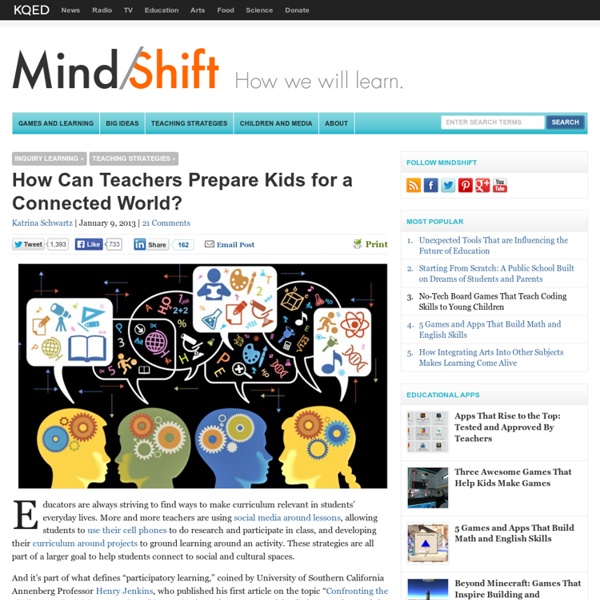chewing word
Publié le 4 octobre 2016 | pas de réaction Télécharger le document Invitation à la causerie #eduortho Publié le 31 mars 2015 | pas de réaction Prédicteur de mots orthographique ou phonétique? Publié le 10 février 2015 | pas de réaction Le choix d’une aide technologique pour pallier aux difficultés d’écriture peut s’avérer être très difficile. Les prédicteurs de mots travaillent dans ce sens, mais comment choisir celui qui s’avérera le plus efficace pour les besoins de l’utilisateur? Le prédicteur à correspondance orthographiqueCe type de prédicteur de mots repose sur une analyse des lettres écrites par l’utilisateur. En règle générale, le prédicteur de mots orthographique permet d’exprimer le plein potentiel à l’écrit de la majorité des utilisateurs. Le prédicteur à correspondance phonologique Ce type de prédicteur de mots repose sur une analyse des sons écrits. Texte provenant de l’infolettre HAYLEM Technologies
Socrative Teacher
Age Restrictions. You may only use the Site and Services if you are: (i) at least 13 years of age; or (ii) if you are under 13 years of age, with the consent of your teacher or a legal parent or guardian. By using the Site and Services, you hereby represent and warrant that you are at least 13 years of age or, if you are under 13 years of age, that you have the consent of your teacher, legal parent, or guardian to use the Site and Services. Verification of Identity. You acknowledge that we may choose, but are not obligated, to make any inquiries, either directly or through third parties, that we deem necessary to validate any user’s registration information, including without limitation engaging third parties to provide identity or other verification services. Teachers and Educators. If you are a teacher or educator, and will use the Socrative Services as an education tool, please read this section carefully. Changes. General Use. Mobile Applications. Registering to Use the Site and Services.
Fun Failure: How to Make Learning Irresistible
Culture Bao Tri Photography By Anne Collier Failure is a positive act of creativity,” Katie Salen said. Scientists, artists, engineers, and even entrepreneurs know this as adults. Salen, executive director of the Institute of Play and founder of Quest to Learn, the first public school based on the principles of game design in the U.S., explained how failure can be a motivating agent for learning in her presentation at SXSW. Any practice – athletic, artistic, even social – involves repeatedly failing till one gets the experience or activity right. Game designer Jane McGonigal makes a similar point. But the opposite is true in school, Salen said. Over the past year, Salen went on a “listening tour,” interviewing game designers at Media Molecule, Valve, and Blizzard Entertainment. Don’t shoot the player while she’s learning. A version of this post appeared on NetFamilyNews. Related
Humanities (Online) - Middle Years Programme - IB Store
MYP Taskbank: Humanities (Online) is a fully searchable database of approximately 400 MYP Humanities tasks together with additional resources, assessment tools and teacher notes. The extended writing tasks, test questions and assignment tasks in this Taskbank are aligned to MYP: Humanities guide (2012) and are suitable for students in all years of the MYP. Search for tasks using a powerful filtering systemEdit any task online and save to a personalized libraryCreate new tasks and attach criterion tables at the click of a buttonAdd video/audio/high resolution images to any taskPrint tasks directly from the web browser for students Payment for this product is by annual school subscription. If you are purchasing for multiple schools please enter the number of schools you are purchasing for in the quantity box. You can find help videos by following this link:
Pédagogie inversée : des résultats scolaires nettement supérieurs
Au Calhoun Community College, en Alabama, les étudiants sont responsables de connaître la matière avant d’arriver en classe. Sur place, ils travaillent ensemble sur des projets leur permettant de progresser dans leurs apprentissages, tout en menant des discussions significatives avec l’enseignant. Bienvenue à l’ère de la classe inversée! Le concept de classe inversée est très populaire ces temps-ci. L’idée a notamment fait du chemin avec la popularité grandissante de la Khan Academy, un espace Web qui fait la promotion de l’apprentissage libre et gratuit pour tous. Au Calhoun Community College, c’est la réalité de plusieurs groupes. Dans les dernières années, le Calhoun Community College a vu sa clientèle augmenter de 25 % en raison de l’explosion démographique. La dynamique de classe inversée s’y est imposée naturellement. « C’est une philosophie et non une méthodologie, note Bobbi Jo Carter, coordonnatrice de l’apprentissage numérique au collège. À lire aussi : Pour suivre l’auteur :
Fastest Way to Create Comic Strips and Cartoons - Toondoo
Faire ses premiers pas vers la classe inversée
Un dossier conjoint Infobourg – Carrefour Éducation Peut-être avez-vous entendu parler dernièrement de la fameuse dynamique de « classe inversée »? Elle semble être sur toutes les lèvres! Parmi les enseignants qui l’ont expérimentée, certains ne peuvent plus s’en passer et y voient des avantages énormes, notamment grâce aux nouvelles possibilités de personnalisation de l’enseignement entraînée par l’augmentation du temps disponible pour les élèves. Mais tout d’abord, qu’est-ce que la classe inversée? Présentement, au primaire et au secondaire, on voit certains cas d’application du modèle « mixte », un contexte dans lequel une partie de l’année se déroule de façon « inversée » et, l’autre, de façon traditionnelle. Ce dossier conjoint de Carrefour Éducation et d’Infobourg propose de faire le tour de la question et de prendre connaissance de l’expérience de certains enseignants. Plan du dossier : 1. 2. 3. 4. À propos de l’auteur Audrey Miller Pour suivre l’auteur :
IB Revision Courses in Europe by UC Academy



